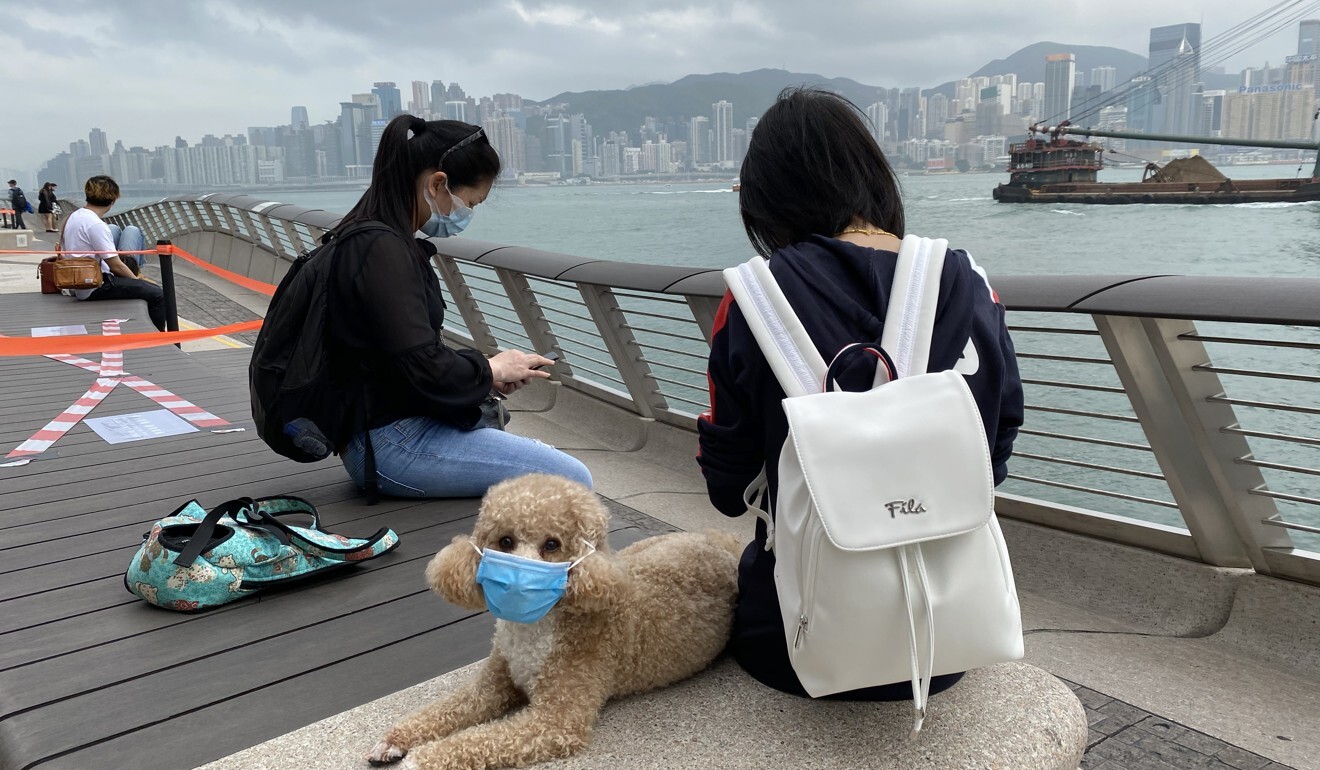
Coronavirus: No new cases in Hong Kong, but health chief warns fight is ‘new normal’
- For the second time this week, the city has an infection-free day, but Sophia Chan points to long battle ahead
- Restaurants allowed to operate at full capacity again, but business still down, while police reject bid to hold Labour Day rally
The warning came as restaurants resumed operating at full capacity instead of half, although the move brought little relief to eateries, with spots in downtown Causeway Bay that are usually packed during the lunchtime rush hour mostly empty.
Tough measures to contain the spread of the disease were previously extended until the first week of May, and police cited the risk of transmission as why organisers were denied permission to stage a Labour Day march on the first of the month. It remains unclear whether Hong Kong’s two most politically sensitive rallies of the year – in June and July – will go ahead.
Leading medical experts have said the city could begin to ease restrictions if new cases stayed in the single digits for 28 days as they have for nearly two weeks. Business owners, who complain they are “bleeding”, want life back to normal soon, but the health chief struck a cautious tone on Friday.

“Society, I believe, will have to gradually accept this new norm,” Secretary for Food and Health Professor Sophia Chan Siu-chee told government radio. She denied the authorities were slow to respond to the crisis or their strategy had been confusing. “We make plans a couple of steps ahead,” she said. “But when we announce it, of course we are not going to spell out the comprehensive plan in one go.”
Speaking later in the Legislative Council, Chan stressed the Covid-19 pandemic remained unpredictable overseas and officials had to consider how many patients local hospitals could handle. All but two of the 35 cases recorded in the past 13 days were returning travellers.
The previous local case was last Saturday, when an airport ground staff member whose role included helping arrivals was confirmed infected. Chan and health experts agree restrictions could only possibly be eased when the city was free of community infections for two weeks, or twice the length of the incubation period of the disease. The city has recorded 1,035 cases and four related deaths.
The secretary acknowledged some people were having “a hard time” putting up with the social-distancing strategy, which has forced bars, gyms, beauty salons and a host of other popular gathering points to shut, while residents are ordered to keep groups to four while out in public.
Restaurants must continue to observe other preventive measures, such as allowing only four people to sit at tables, which must be spaced 1.5 metres [5 feet] apart or separated by partitions, until May 7.
Small and medium-sized restaurants said returning to full capacity did little to bring back customers, and locals did not feel like dining out.
In Jardine’s Bazaar at the heart of Causeway Bay, a few small eateries were filled but the bigger establishments remained largely empty at lunchtime.
“[The relaxation] seems to give us more business opportunities,” said a manager of a local-style tea cafe who preferred to remain anonymous. “But it’s actually similar to previous days. We are bleeding.” He pointed to a 60 per cent drop in revenue since the start of the pandemic.
A cashier with a roasted meat eatery said there was some advantage as returning to full capacity had made it easier to organise their roughly 30 seats.
Gordon Lam Sui-wa, convenor of the Hong Kong Small and Medium Restaurant Federation with 300 to 400 members, called for more relief measures on top of the existing HK$167.5 billion [US$21.6 billion] the government has rolled out.
The health minister told Legco the government would closely review the pandemic restrictions. When asked whether the city could be at risk during the “golden week” in May – a national holiday that in previous years guaranteed a stream of mainland shoppers – Chan said the 14-day quarantine requirement for all incoming arrivals would remain in place.
In turning down permission for the Labour Day event, the police said it would endanger public health. The organising Confederation of Trade Unions had argued participants could keep to groups of four and stay 1.5 metres (4.9 feet) apart, but the force said the procession would increase the risk of transmission. The workers’ rally usually only attracts a few thousand people, and much bigger tests of the public’s willingness to follow the ban on gatherings are coming.
Another politically charged anniversary follows on July 1, marking the return of Hong Kong to China in 1997, which last year drew more than half a million people, according to organisers. That march ended with protesters storming Legco and defacing the chamber in anger over the government’s now-withdrawn extradition bill.
At least six candidates had to miss out on the first day of the Diploma of Secondary Education exam due to fever or other illnesses, while almost 300 others withdrew either because they were sick or outside the city, according to the Hong Kong Examinations and Assessment Authority.


